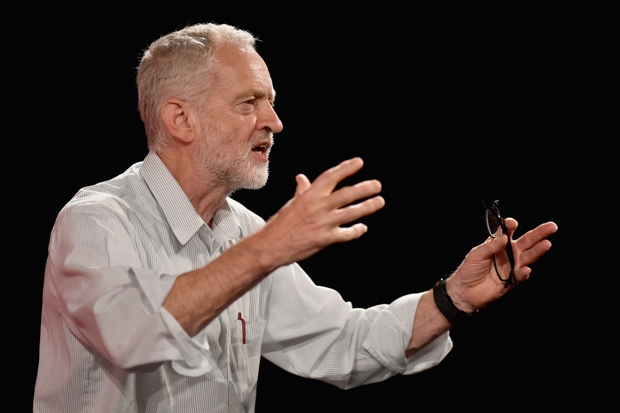I’ve often wondered if Freudian theories could be applied to the Left in the same way they have been applied to the Right in the past. Is there an equivalent, for example, of The Authoritarian Personality but perhaps labelled The Moralising Personality, which would explain the mind-set of so many people?
(I agree with this writer that a lot of people who rail against patriarchy seem to have a direct problem with their own fathers. It’s also curious how some strident feminists convert to Islam, which could possibly be something to do with their dads. But maybe that’s at the root of my own political insanity, too.)
Moral righteousness is not confined to the Left, but it appears to be more common there, and becomes more so the further Left you go. I thought of this when the subject of Jeremy Corbyn’s marriage came up again. Although I would agree that politicians’ private lives are best skirted over – for fear that it will only attract dullards as a result, and because journalists shouldn’t be taking the moral high ground on anything – the cause of their divorce is instructive: his wife’s decision to send their son to a grammar school. It’s a classic example of English socialists not seeing eye-to-eye with their immigrant supporters on education, which immigrants tend to really care about. But what does it say about Corbyn as a person that political ideals came first?
Left-wing politicians inevitably get in trouble with education because socialism entails personal sacrifices and most people are too self-interested to make them (it’s almost as if socialism is against human nature), but a few really are true believers and they’re the ones to watch out for.
Corbyn is an idealist, and throughout history idealists have brought far, far more misery to the world than cynics and pragmatists. People who think they’re good and that they can make the world a better place end up doing much more damage, which is what can appear so frightening about the new generation of social justice warriors. In a related but different context, Jonathan Sacks uses the phrase ‘altruistic evil’ in reference to religious-based violence in his new book Not in God’s Name. Sacks believes that it’s easier to commit when you believe yourself to be righteous.
One of the sure signs that someone is an idealist is that their entire life is dominated by the cause, which in effect is a substitute religion; note how Corbyn reportedly says that he could not be friends with someone who isn’t left-wing. Isn’t that a red, flashing, warning light, equivalent to a man who talks all night about his mum on the first date?
All the worst ideas in history have come about through idealism. The French Revolution failed because its most influentual figure, Robespierre, had a vision of how things should be rather than accepting compromise; in the 20th century we have even better examples of people who wanted to make the world a better place, but largely succeeded in making it an emptier one. In contrast, cynical leaders ditch ideology for practical reasons: De Gaulle exited Algeria, Nixon made peace with China, Bill Clinton, for all his faults at home and abroad, employed right-wing approaches to the economy and crime where it was successful. Some of New Labour’s best work was in education; the party followed some traditionally Conservative approaches because they seemed to work best.
Most British people don’t really like idealists, whether Left or Right. It’s why Tony Blair – an uber-pragmatist, who appeared to hold almost no convictions – managed to win three elections, two of them landslides. In fact the one thing he did out of pure idealism – the overthrow of Saddam Hussein – is generally viewed as his biggest disaster. A pragmatic, cynical view of Iraq would have probably caused far less misery.







Comments